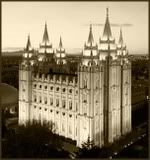I'm going to post Friday, Saturday and Sunday's words.
Friday: exoteric ek-suh-TAIR-ik\adj. 1: suitable to be imparted to the public. 2: belonging to the outer or less initiate circle. 3: external.
Example Sentence: As a specialist writing for a broader audience, Annette faces the challenge of producing an exoteric synthesis of complex information.
Did you know? "Exoteric" derives from Latin "exotericus," which is itself from Greek "exoterikus," meaning "external," and ultimately from "exo," meaning "outside." "Exo" has a number of offspring in English, including "exotic," "exonerate," "exorbitant," and the combining form "exo-" or "ex-" (as in "exoskeleton" and "exobiology"). The antonym of "exoteric" is "esoteric," meaning "designed for or understood by the specially initiated alone"; it descends from the Greek word for "within," "eso."
My use: It seems like a lot of information is seen as exoteric these days when it should stay personal.
Saturday: wherewithal\WAIR-with-awl\n. 1: means, resources; specifically: money
Example Sentence: If I had the wherewithal, I'd buy that empty lot next door and put in a garden.
Did you know? "Wherewithal" has been with us in one form or another since the 16th century. It comes from "where" and "withal" (meaning "with"), and it has been used as a conjunction meaning "with or by means of with" and as a pronoun meaning "that with or by with." These days, however, it is almost always used as a noun referring to the means or resources one has at one's disposal - especially financial resources, that is, money.
My use: If I had the wherewithal, I'd buy the house next door and knock it down so we don't have any more crappy tenants.
Sunday: muckrake\MUCK-rayk\v. 1: to search out and publicly expose real or apparent misconduct of a prominent individual or business.
Example Sentence: Arn is an aggressive reporter, never afraid to ask difficult questions, hound evasive sources, or muckrake when things appear suspect.
Did you know? The noun "muckrake" (literally, a rake for "muck," i.e., manure) rose out of the dung heap and into the realm of literary metaphor in 1684. That's when John Bunyan used it in Pilgrim's Progress to represent man's preoccupation with earthly things. "The Man with the Muckrake," he wrote, "could look no way but downward." In a 1906 speech Teddy Roosevelt recalled Bunyan's words while railing against journalists he thought focused too much on exposing corruption in business and government. Roosevelt called them "the men with the muck-rakes" and implied that they needed to learn "when to stop raking the muck, and to look upward." Investigative reporters weren't insulted: they adopted the term "muckraker" as a badge of honor. And soon English speakers were using the verb "muckrake" for the practice of exposing misconduct.
My use: It has taken a lot of muckraking to expose some of the top officials in business as embezzlers.
Monday, October 27, 2008
Subscribe to:
Post Comments (Atom)



No comments:
Post a Comment